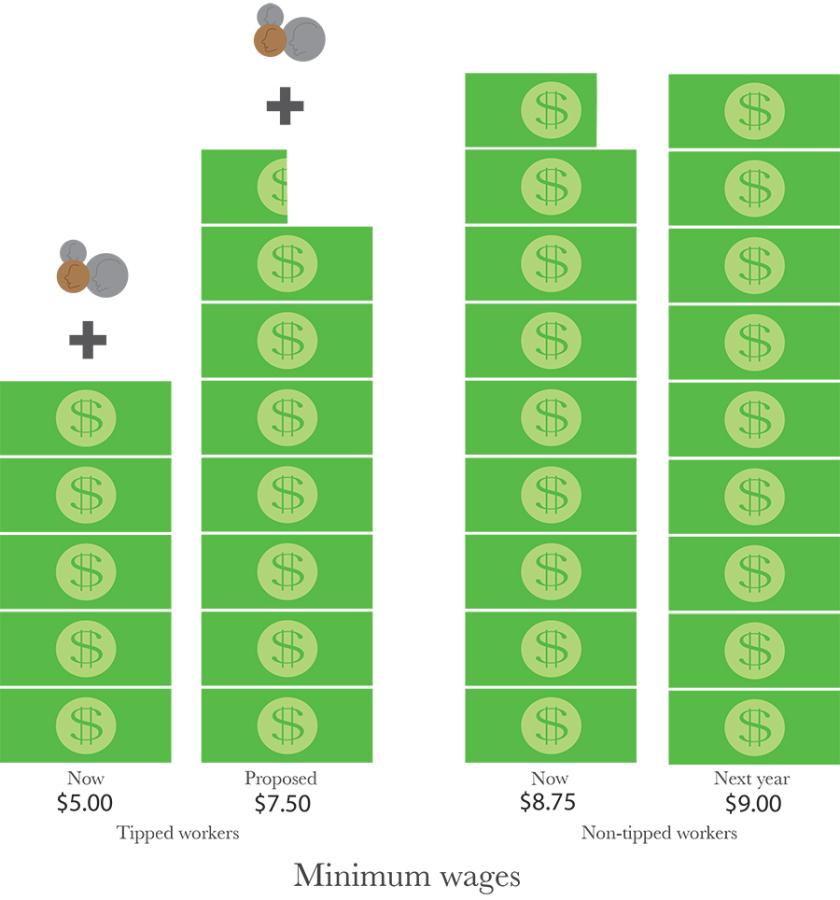Wage raise proposal for tipped workers
February 4, 2015
The New York wage board proposed to raise the minimum hourly wage for tipped workers, such as restaurant and hospitality staff, from $5 to $7.50 on Friday.
The proposal, if approved by State Labor Commissioner Peter Rivera, would take effect on Dec. 31.
Currently, New York State law permits workers’ salary to be less than the minimum wage of $8.75, as long as tips are enough to make up the difference. The wage will increase to $9 by the end of this year.
Gov. Andrew Cuomo voiced his approval of the recommendation.
“For far too long, wages for tipped workers in New York State have been too low,” said Cuomo. “Today the Wage Board has recommended a course that begins to rectify that.”
However, workers would only be paid $6.50 an hour if they made at least one and a half times the current minimum wage for tipped workers
including gratuities.
Those opposed to the measure include restaurant and business owners, who voiced concerns about reduced work hours, job creation, and salary for non-tipped employees on Friday.
Additionally, labor advocated hoped to expand to tipped workers the standard minimum wage of $8.75 without tips, completely eliminating the need for a tipped wage.
CAS sophomore Nicole Callahan said tips provide an incentive for waiters to provide quality service, which in turn improves customer experience and credibility for businesses.
“It’s a sad reality, but I feel that if wages were increased, then some waiters will not be providing the service required of them,” Callahan said. “Additionally, tipped employees find tipped jobs for a reason. If they did not want to work for tips they would have found a minimum wage job.”
NYU economics professor Christopher Flinn said the hourly wage raise will change the way people tip.
“The interesting thing to consider is how such a law would affect the tips that customers leave,” Flinn said. “In most European restaurants, wait staff are paid significantly more than in the U.S., but it is also the case that most customers leave tips of less than 10 percent if they leave anything at all.”
LS freshman Jessica Perchuk, who works at Amorino Gelato, said increased wages would not affect the way her customers tip.
“I don’t think customers would tip us less if they knew we would be getting paid more,” said Perchuk. “They tip us based on service.”
Flinn added that the wage increase may have no effect on tipped workers’ income.
“This could result in a situation where workers take home the same earnings and employment is not affected greatly,” Flinn said. “These earnings would be easier to collect taxes on, so that net wages could even decrease.”
A version of this article appeared in the Wednesday, Feb. 4 print edition. Email Elaine Lo at [email protected].
























































































































































